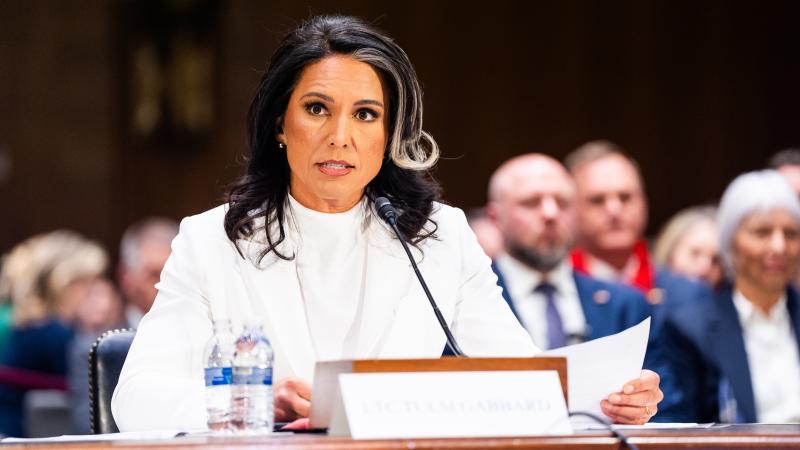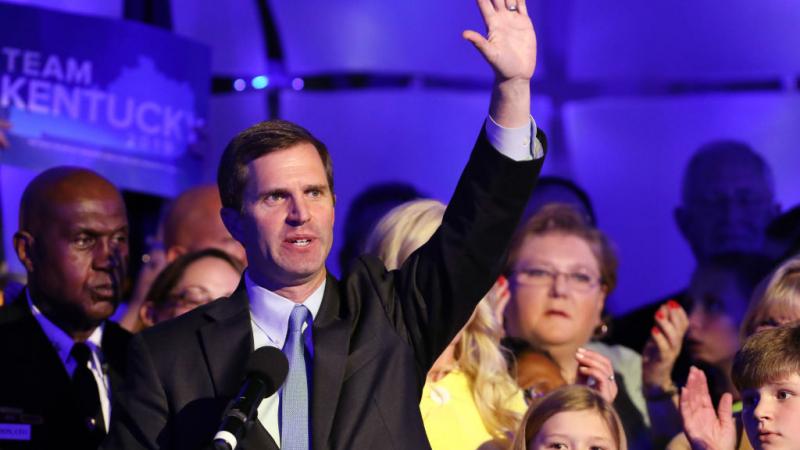IG excoriates FBI conduct in Russia probe, concludes FISA warrants misled court
A long-awaited DOJ inspector general report found 17 serious instances of misconduct by the FBI in securing a FISA warrant targeting the Trump campaign.
The FBI’s investigation into alleged Russia-Trump collusion was properly opened without political bias in 2016 but quickly devolved into “serious performance failures” that misled the courts about the flaws with the bureau’s evidence and its star informant Christopher Steele, the Justice Department’s chief watchdog concluded Monday.
Inspector General Michael Horowitz spared few words for the FBI and its chain of command as he concluded the bureau misled the Foreign Intelligence Surveillance Court with at least 17 errors and omissions that rendered each of four applications for surveillance warrants grossly inaccurate.
“Our review found that FBI personnel fell far short of the requirement in FBI policy that they ensure that all factual statements in a FISA application are ‘scrupulously accurate,’” Horowitz wrote. “We identified multiple instances in which factual assertions relied upon in the first FISA application were inaccurate, incomplete, or unsupported by appropriate documentation, based upon information the FBI had in its possession at the time the application was filed.
Specifically, the IG found, FBI agents had not corroborated any of the allegations in Steele’s dossier before using his source information to support its first FISA warrant on Oct. 21, 2016 and even blew past concerns of a senior DOJ official about Steele’s political biases.
In subsequent applications to renew the FISA warrants in 2017, the FBI failed to inform the FISA judges that Steele’s main intelligence source had raised a stunning red flag by disavowing information attributed to that source, the report said.
The massive omission and false assertions in the FISA applications “made it appear that the information supporting probable cause was stronger than was actually the case,” the IG found.
“We concluded that the failures described above and in this report represent serious performance failures by the supervisory and non-supervisory agents with responsibility over the FISA applications,” the IG said.
While evidence indicated that the case agents in the Russia probe were mostly to blame for failing to flag the inaccuracies, omissions and Steele credibility issues, accountability needed to be assigned all the way to the top of the bureau, Horowitz said.
“In our view, this was a failure of not only the operational team, but also of the managers and supervisors, including senior officials, in the chain of command,” the report said.
Attorney General William Barr on Monday applauded the IG work, saying it had substantiated “a clear abuse of FISA process.”
“In the rush to obtain and maintain FISA surveillance of Trump campaign associates, FBI officials misled the FISA court, omitted critical exculpatory facts from their filings, and suppressed or ignored information negating the reliability of their principal source,” Barr said.
The biggest winners in the long-awaited IG report were Rep. Devin Nunes and his Republican colleagues on the House Intelligence Committee who flagged the serious flaws in the FISA process back in 2018 and Carter Page, the Trump campaign adviser targeted by the surveillance warrants whose privacy was clearly violated by faulty FBI warrants.
Specifically, the IG found, that none of the four allegations Steele had made about Page and that were included in the FISA warrants was corroborated, including that he met in July 2016 with two senior Russians close to Vladimir Putin.
“We found that the FBI did not have information corroborating the specific allegations against Carter Page in Steele’s reporting when it relied upon his reports in the first FISA application or subsequent renewal applications,” the report said.
Steele, the former MI6 agent who was hired by Clinton’s Fusion GS opposition research firm, was among the biggest losers in the report, which portrayed his dossier as essentially intelligence garbage.
The report divulges that concerns about Steele’s reliability as an informant pre-dated the first FISA applications when a senior Justice official, Deputy Assistant Attorney General Stuart Evans in the National Security Division, flagged Steele’s political bias and connections to Hillary Clinton’s campaign, which paid for his dossier.
Evans warned that “Steele may have been hired by someone associated with presidential candidate Clinton or the DNC, and that the foreign intelligence to be collected through the FISA order would probably not be worth the risk of being criticized later for collecting communications of someone (Carter Page) who was politically sensitive,” the report found.
But senior DOJ and FBI officials, including then-Deputy FBI Director Andrew McCabe, chose to proceed.
That decision resulted in the courts getting a substantially false picture of Steele’s credibility, one that was never corrected during the time the FISA warrants were active, the report said. The FBI misstated the value of Steele’s past intelligence work and hid the lack of corroboration for the allegation in his dossier, the IG concluded.
The report quoted the FBI agent handling Steele as saying “he would not have approved the representation” that Steele had been a reliable informant because “most” of his information had not in fact been corroborated.
“We concluded that these failures created the inaccurate impression in the applications that at least some of Steele’s past reporting had been deemed sufficiently reliable by prosecutors to use in court, and that more of his information had been corroborated than was actually the case,” the report found.
The report divulges that other intelligence community assets, including the CIA, so distrusted Steele’s dossier that they urged it not be included in the intelligence community’s assessment of Russia interference in the 2016 election.
“The Central Intelligence Agency (CIA) expressed concern about the lack of vetting for the Steele election reporting and asserted it did not merit inclusion in the body of the report. An FBI Intel Section Chief told us the CIA viewed it as ‘internet rumor,’” the report noted.
Separately, the report also confirmed reporting I did more than a year ago that the FBI obtained exculpatory information from Page and George Papadopolous, two of the targeted campaign aides in the investigation, but did not disclose that information to the FISA judges even though it “raised questions about the validity of allegations under investigation.”
The report cites several instance, including Page telling an FBI informant in August 2016 he never had contact with Manafort and Papadopoulou\s repeatedly insisting to an informant that the campaign wasn’t involved in hacking or distributing Clinton’s emails.
The FBI actually had recorded undercover statements from Papadopolous stating in fall 2016 that “as far as I understand … no one’s collaborating, there’s been no collusion and it’s going to remain that way.”
















